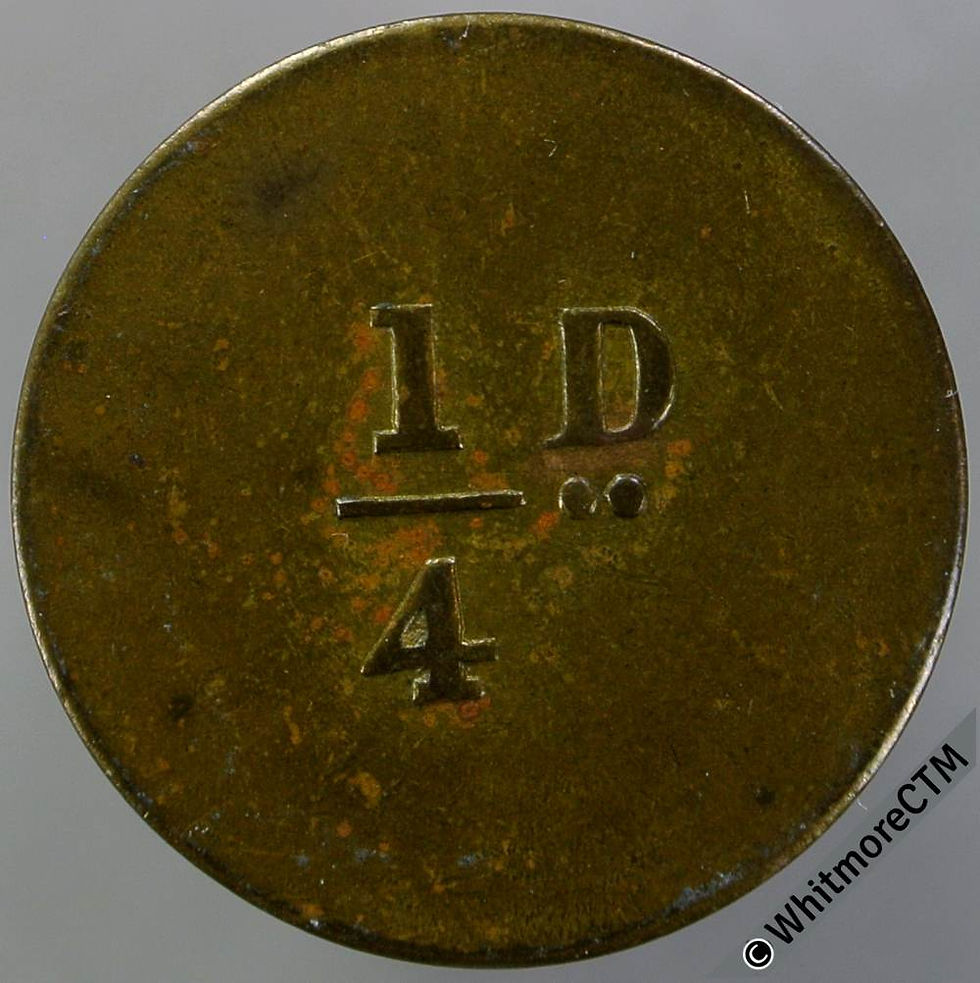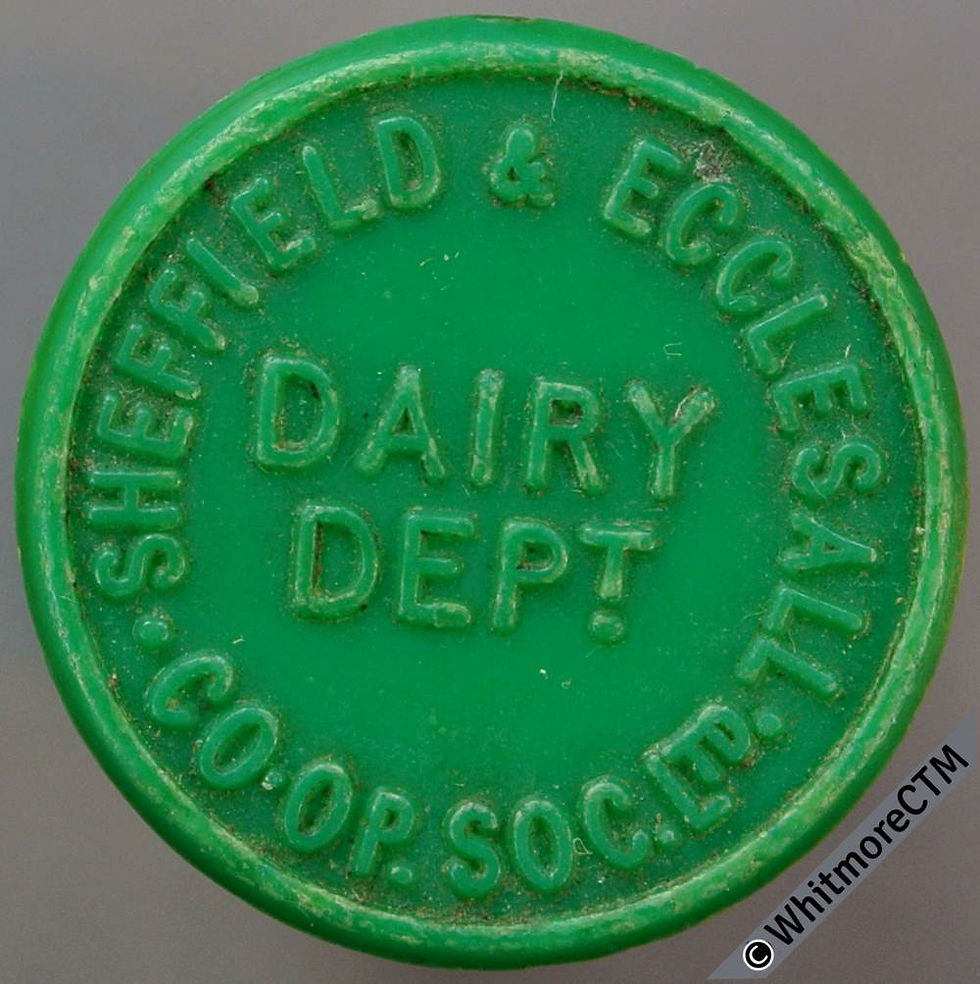CO-OPERATORS AND COMPETITORS
an introduction to Co-Op tokens by John Whitmore
The co-operative movement, which expanded rapidly after originating in Rochdale in 1844, was based on the concept that its profits were returned to the members in the form of a dividend, calculated as a proportion of each pound spent. The dividend could not be declared until accounts were made up, and it was not easy to keep track of every member's spending in the meantime. A commonly adopted solution, especially in the early days of the movement, was to give an equivalent face value in tokens with every purchase. When the dividend was declared, all tokens brought in were exchanged at the dividend rate. The redeemed tokens could then be issued again.
Even for a small society, and many began as a single shop, the system required tokens in substantial quantities, and the cheapest and easiest method of production used a single die in a hand press stamping thin blanks of tinned iron. The process is rather like that used to emboss notepaper. Tokens made in this way are termed bracteate with the design appearing on both sides, but only the raised impression reading normally. What was cheap to produce was also easy to counterfeit, and in time many societies used tokens of a more conventional style in brass or bronze ordered from a commercial maker.
Some independent shopkeepers, most frequently the grocers and tea dealers, challenged the competition of the co-ops with their own bonus schemes employing superficially similar tokens, but often expressed in terms of the goods themselves, such as 1/4 lb. of tea, rather than a monetary value. Where private firms adopted bonus schemes with values on the tokens, it is usual to assume that higher face values, a shilling or above, reflect the amount spent. Lower figures, up to sixpence, may instead represent the actual redemption value of the token. Without separate evidence it is not possible to be sure how such shopkeeper's tokens were employed.
More recently co-operative societies have issued tokens for prepayment of home deliveries of milk and bread, which saved cash having to be collected daily. Other tokens, which often include the term mutuality, helped to facilitate schemes for goods to be bought on credit

































































































